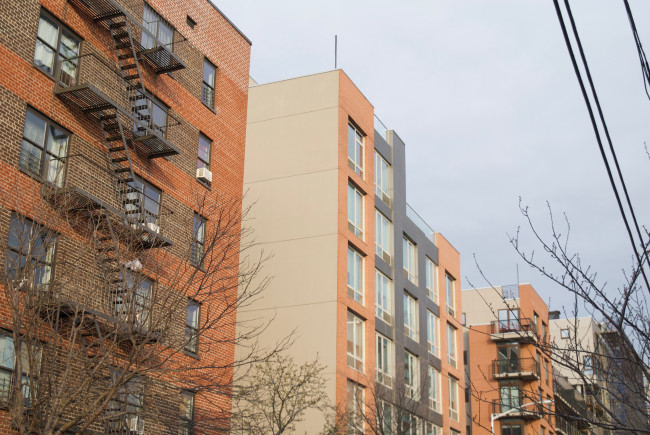Our co-op board is getting complaints about a video doorbell invading a shareholder's privacy. How should we respond?

A board is within its rights to pass a resolution preventing the use of video doorbells by residents.
iStock
“In some circumstances it could be illegal for owners to have video doorbells recording footage in the hallway, so drafting a board resolution to ban them is certainly an option, especially if the cameras are installed in the common areas, which are under control of the board,” says Niki Khindri, an attorney at NYC real estate law firm Adam Leitman Bailey P.C. where she focuses on real estate transactions and co-op and condo law.
In New York, you are permitted to record an audio conversation as long as one party to the conversation knows you are recording.
“That means you can record a conversation you are having with another person without their knowledge but recording others when you are not a party to the conversation and in places where there’s an expectation of privacy—such as within one’s home—could be against the law,” Khindri says.
When privacy concerns are raised about security doorbells, Khindri says the complaints are often due to an underlying problem between neighbors. The camera should not be pointing into someone else’s apartment. That said, your board should also consider that the equipment may be in place to deter harassment by another resident.
Consult the house rules and bylaws before making changes
Your first step is to see if there’s anything in your building’s governing documents addressing the use of doorbells with cameras.
“In most cases, the house rules and bylaws will be silent on this because they were written before smart technology allowed residents easy access to digital security footage as a feature of their doorbell,” Khindri says. However, since most video doorbells would be installed on the outside of the apartments in the common areas, the board would have the ultimate say in whether they stay or go.
“At that point, it becomes a question of balancing one resident’s desire for security against another’s desire for privacy,” Khindri says.
It is arguably an invasion of privacy if a video doorbell is angled in such a way that it provides footage of the interior of a neighbor’s apartment when their door is ajar, especially if the doorbell is able to pick up audio.
“Additionally, some residents don’t feel comfortable being recorded coming and going from their apartment,” Khindri says.
She says the board is within its rights to introduce and pass a resolution preventing the use of security cameras in common areas by residents.
“If the camera installed in the interior of your apartment picks up footage of the rooms inside that’s acceptable, but if it’s installed in the common areas, a board can vote to prohibit them,” Khindri says.
A resolution banning video doorbells could be passed by the board as a new house rule, in which case no shareholder approval would be necessary.
However, Khindri points out that in some cases draft resolutions drawn up to ban this equipment have been rejected by boards.
“Others have passed resolutions but restricted the ban to video cameras directly facing other apartments,” she says.
Dealing with video camera privacy complaints
One of the reasons a board might be reluctant to ban video doorbells completely is because the complaint might stem from an underlying problem between residents, owners, or shareholders. In some situations, video footage from a camera may be used as evidence where a board seeks to remove an objectionable shareholder from a co-op, also known as a Pullman proceeding.
“There have been situations where a co-op shareholder has been harassing a neighbor—writing on their apartment door or knocking on it at all hours of the day and night—and in a Pullman case it’s important to have well-documented evidence of the kind of behavior that’s considered objectionable,” Khindri says. A camera could provide this evidence but not, of course, if such cameras have been previously banned by the board.
It’s also possible the installation of the camera is part of that objectionable behavior. Khindri says in one case, a complaint arose because a shareholder installed a camera directly facing a board member’s apartment.
A board would be advised to send a letter to the owner or shareholder notifying them of the complaint against the camera they have installed.
Another difficulty is that all shareholders and owners must be treated equally. “If the conflict arises because of a disagreement between neighbors, it would be advisable to pass a building wide resolution banning this technology rather than singling out a specific owner or tenant shareholder,” Khindri says.
Passing rules that apply to everyone would address any claims a resident may bring against the board that they are being treated unequally.
“This is also why resolutions that ban videos directly facing other apartments—but otherwise permitting them in common areas—may present some boards with a good alternative to outright bans,” Khindri says.
Real estate attorney Niki Khindri focuses on real estate transactions, co-op and condo law, and intellectual property law at Adam Leitman Bailey P.C.. To submit a question for this column, click here. To arrange a free 15-minute telephone consultation send Niki an email.
You Might Also Like
Sign Up for our Boards & Buildings Newsletter (Coming Soon!)
Thank you for your interest in our newsletter. You have been successfully added to our mailing list and will receive it when it becomes available.

























